Last week, the Civil Infrastructure Platform (CIP) Project participated in Open Source Summit Japan hosted by The Linux Foundation (LF) as a Silver level sponsor.
The following article is a short recap about what we learned and accomplished during these 3 days of the conference.
Open Source Summit Japan?
Before going into the CIP specifics, let me briefly touch upon the event we participated in. I assume that many of you have heard the events called “LinuxCon”, “CloudOpen” and “ContainerCon”. These were events the LF had been hosting up to the last year. These 3 events were separately branded, but typically, hosted on the same day at the same venue. This year, the LF decided to bring all three event together and re-brand it “Open Source Summit.”
Open Source Summit (OSS) Japan is actually the first-ever LF event under the Open Source Summit brand and it was co-located with Automotive Linux Summit (ALS)
The event was packed! More than 1,000 people participated to the event. All sessions were delivered in English, even the Japanese developers delivered their talks in English. There weren’t any translators (except for the keynote) and this gave the event a very international flavor with many non-Japanese participants.
CIP’s first ever open workshop
A day before Open Source Summit started, CIP members had meetings for the Governing Board and Technical Steering Committee. Most notably, however, we had the first-ever open workshop, which was made available for anyone who is interested in the work we are doing at CIP.
There, we discussed, along with the non-member participants, Real Time (PREEMPT_RT) and CIP testing.
We only had a short period of time and a limited number of non-member participants but we thought it was successful and are considering doing it again at Embedded Linux Conference Europe (ELCE) in October. We will let you know once we finalize the plan. 😉
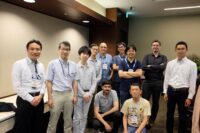
First Ever CIP Open Workshop
Demos at the CIP Booth:
It has been a year since the inception of the project and we’ve been making a lot of progress. But, CIP is NOT the kind of project to innovate some fancy, cutting edge, newest technology.
Instead, CIP is one of the most conservative projects among the 60+ projects the LF currently hosts, and we DO take pride in it.
We take pride in maintaining a software that will become the backbone of our civil society infrastructures such as energy, transportation with the robustness and security level industry requires. To do that, our work needs to focus on “making the system industrial grade.” Choosing one or very few kernel versions and keep re-painting and duct taping them, as well as investing to Real-time capability, security and safety etc.
As such, we did have demos that entertained the audience. Here are a few details about the CIP member demonstrations at the booth. These products are all running on the CIP 4.4 Kernel.
TOSHIBA: Power Plant Controller with CIP kernel
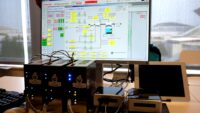
Hitachi: Industrial controller with CIP kernel
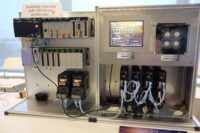
Plat’Home: Simple IoT Demo.
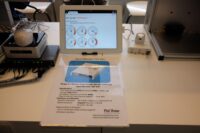
Renesas: CIP test framework on RZ/G reference platform

Siemens was also planning to demonstrate the IoT2040 device that runs CIP kernel, but it did not arrive to Japan on time. We hope to see it at our next conference.
CIP Sessions:
There were 2 CIP-related sessions during Open Source Summit Japan.
Civil Infrastructure Platform: Industrial Grade SLTS Kernel and the Base-Layer development – Yoshitake Kobayashi, Toshiba & Chair of TSC at CIP.
Yoshi Kobayashi provided the basic status update of the CIP project in general. The session was well attended with more than 50 participants from different industries who actively participated in the conversation as to how CIP may solve the issues facing their companies today.

Yoshi Kobayashi, Toshiba
The Many Approaches to Real-Time and Safety Critical Linux Systems – Wolfgang Mauerer, Siemens.
While Yoshi provided the general status update about the project, Wolfgang gave an overview of architectural options for two of CIP’s focus areas, Real-Time and Functional Safety. With no seats left in the room, the topic seems to be of great interest to the community, and will likely continue to grow in importance in the future when we see more and more industrial devices based on Linux.
All in all, the 3+ days in Tokyo was extremely fruitful for the CIP Project and our member companies. If you missed Open Source Summit Japan this year, I strongly urge you to try to come over to Japan to join next year.
Also, the CIP Project is planning to sponsor the Embedded Linux Conference Europe (ELCE) this coming October. If you are planning to come to Prague, please stop by our booth!!
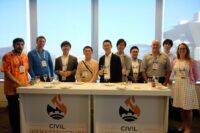
CIP Team Photo
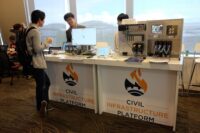
CIP Booth
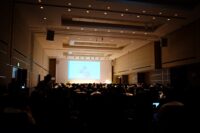
Scene from Keynote

Tokyo night view